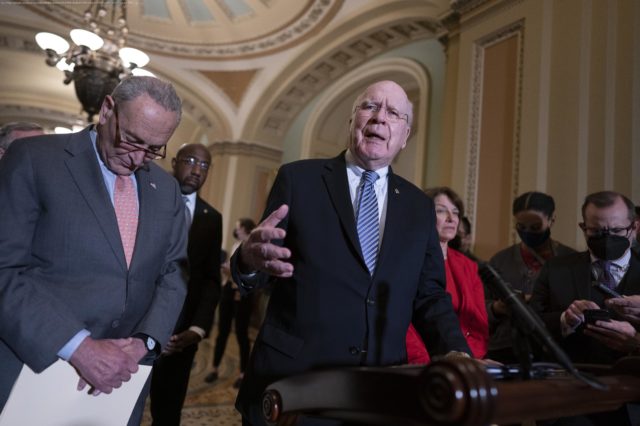Democrats are working to negotiate a government funding deal, but Republicans have a long list of demands before they’ll come to the table.
With a government shutdown deadline approaching, Republicans are flirting with forcing a longer-term freeze on funding levels — forgoing the potential for extra defense spending in order to jam Democrats into Trump-era domestic limits. Even as Congress prepares to kick the next spending cliff from Dec.3 to the holidays, Democrats are clamoring to begin bipartisan negotiations on a sweeping government funding deal. But the GOP’s burgeoning hardline approach to the talks threatens the majority party’s hopes of ushering in their own spending priorities. It’s all but inevitable that Congress passes a stopgap funding patch next month, leaving spending levels flat — what no one knows yet is how long that arrangement will last. Democratic leaders believe retiring GOP senators will provide the bipartisan support needed for a longer-term spending deal and that appropriations leaders will squash a freeze, according to a leadership source. Their bet may be misplaced, however: Republicans are internally debating how long to extend a patch that continues current levels of spending, according to sources familiar with the discussion. If Democrats don’t bend to their funding conditions, Republican leaders say they aren’t afraid of the ultimate fallback, a so-called « continuing resolution » or CR that drags out the same spending levels for the 10 months left in the budget year. “We’ll walk away from the bill, and we’ll just go with a CR. We’re not going to do it, » Rep. Ken Calvert of California, the ranking Republican on the House’s defense funding panel, said about Democrats digging in on their liberal funding goals. Democrats don’t need the other party’s help to advance the $1.75 trillion climate action and safety net spending package they are working to pass. Government funding bills, however, need 60 votes in the Senate. And Republicans could benefit from a monthslong standoff on the topic, which would hamstring Democrats’ attempts to increase non-defense spending. As inflation poses a fresh threat to President Joe Biden’s sagging approval ratings, Republicans are seeking to brand themselves as cutting spending to tame ballooning prices for consumer goods — even though the national debt surged by more than $7 trillion during Trump’s presidency. « It’s a shameless approach that they’ve taken, » Sen. Chris Van Hollen (D-Md.) said about GOP leaders’ refusal to negotiate on a longer-term spending bill unless Democrats acquiesce on every controversial policy before negotiations can begin. « There are a number of Republicans who believe that it’s important to fund the priorities of the federal government, including the defense priorities.






